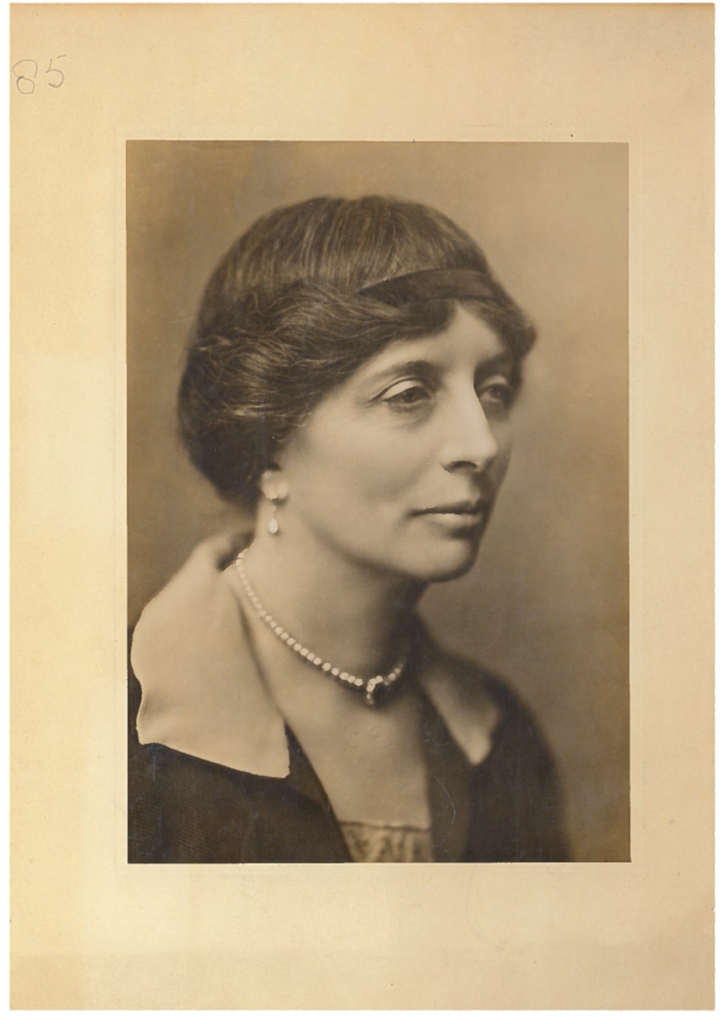As students at this school, we rarely pause to reflect on the remarkable women who have walked these halls before us and the enduring legacy they have left on WHS and the wider world. To honour these women, we are launching a series of articles celebrating some of WHS’s most impactful alumnae and there is no better way to begin than by sharing the story of Katharine Marjory Stewart-Murray, Duchess of Atholl: a pioneering politician and hero of the Spanish Civil War. The timing is especially fitting, as a new biography, ‘Red Duchess: Kitty Atholl, A Rebel in Westminster’ by Amy Gray, has just been released. Read on to discover more about her extraordinary political career, activism, and lasting influence on WHS.

Katharine Marjory Stewart-Murray (née Ramsay), also known as Kitty Ramsay, was born in 1874 and died in 1960. Her parliamentary career and anti-fascist activism became defining elements of her remarkable legacy.
At the age of 49, Katharine Murray became one of only eight women in Parliament when she was elected as the Conservative MP for Kinross and West Perthshire. A photograph of her and her seven female colleagues, taken in 1924, is now displayed in the National Portrait Gallery. She was a true trailblazer, becoming the first woman from Scotland elected to the House of Commons. Although initially devoted to her role as an MP and loyal to the Conservative Party, her career was soon shaped by the turbulence and upheaval of 1930s Europe.

In 1936, General Franco’s attempt to overthrow the Spanish government ignited the Spanish Civil War. Horrified by the devastation she witnessed, the duchess felt compelled to act. She became chairwoman of the National Joint Committee for Spanish Relief, a cross-party coalition coordinating aid to Spain. During this period, she emerged as a self-proclaimed crusader against international cruelty.
At the start of the conflict, the UK had adopted a policy of neutrality and non-intervention. Franco’s rebel forces, steeped in fascist ideology, clashed with Britain’s democratic values; yet the Republican forces were backed by the Soviet Union and associated with radical, progressive reforms that also unsettled British policymakers. The horrific bombing of Guernica, however, galvanised public opinion and enabled her group to persuade the government to offer humanitarian assistance. This included accepting Spanish children fleeing the war zone into the UK. While many praised her efforts, critics named her the “Red Duchess” for her outspoken condemnation of authoritarian regimes in the Soviet Union, Italy, Spain, and Germany throughout the 1930s.
This open criticism of her party’s toleration of Franco cost her position as party whip. Yet, her impact endured in the lives of thousands of Spanish children she helped to save. On the 21st of May 1937, 4,000 children were evacuated aboard the SS Habana from Bilbao to Southampton thanks to her persistent efforts. They were then housed in temporary camps and placed with foster families or sent to “colonies” (hostel-like buildings caring for 20 to 50 children) across the UK. While many eventually returned to Spain, several hundred remained in Britain, either because of the dangers still present at home or because they no longer had family able to care for them.
It is important to acknowledge that her life and career were not without controversy, though. Perhaps most notably, before her parliamentary career, she opposed the women’s suffrage movement and served as Vice-President of the Anti-Suffrage League in Dundee in 1913. It is therefore surprising that just a decade later, she became one of the few women to enter Parliament. Additionally, she was frequently accused of being a communist and faced criticism from figures such as George Orwell, who referred to her as “the pet of the Daily Worker” (a newspaper founded by the Communist Party) and claimed she “lent the considerable weight of her authority to every lie the Communists happened to be uttering at the moment.”
But, among her many extraordinary achievements, she also had deep roots in the Wimbledon High School community. During her time at this school, she was affectionately known as ‘Kitty’ and was a keen tennis player and musician. She was also Secretary and Treasurer for the school magazine in 1889. Kitty was educated here before continuing her studies at the Royal College of Music. In 1889, as an alumna, she composed the music for the school song we still sing today. One lyric, ‘forward to the unconquered peaks above,’ continues to echo through the school as the name of this magazine, Unconquered Peaks.

Not only this, but she served as the Vice-President of the Girls’ Public Day School Trust, the organisation we remain a part of, from 1924 to 1960.
Kitty Ramsay’s life is a testament to courage and conviction. Her determination to speak out against injustice, her trailblazing role as a woman in politics, and her deep connections to the Wimbledon High School community continue to inspire us and the legacy of leadership and compassion she embodied lives on in every student who walks these halls.
